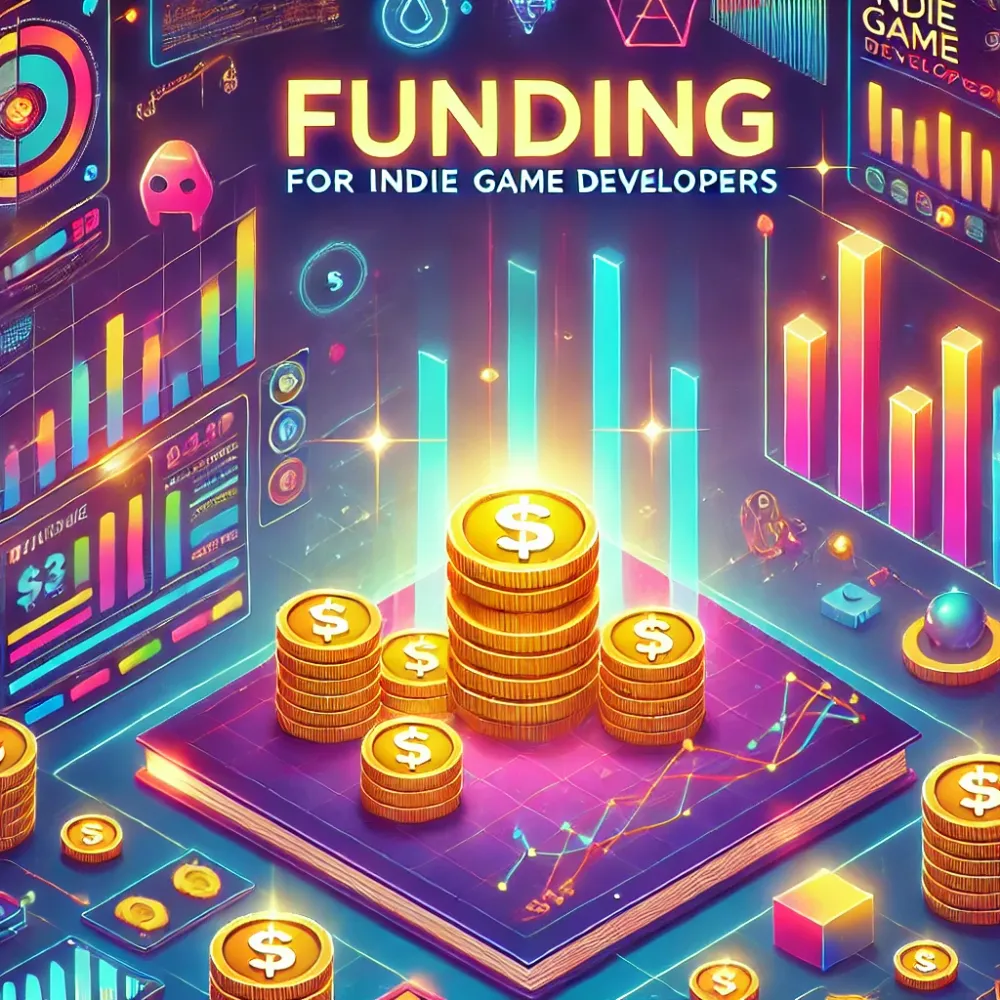Bootstrap to breakout: Funding strategies for indie game developers
Securing adequate funding is a pivotal challenge for indie game developers aiming to transform their creative visions into successful, market-ready products. Navigating the financial landscape requires a strategic approach, leveraging various funding avenues to support development, marketing, and distribution efforts. This comprehensive guide explores effective funding strategies for indie game developers, offering insights into traditional and innovative methods to finance game development projects.
1. Bootstrapping: Self-Funding your project
Bootstrapping involves utilizing personal savings, income from other employment, or financial support from friends and family to fund game development. This approach allows developers to maintain complete control over their projects without external obligations.
Advantages:
- Full creative and operational control.
- Avoidance of debt or equity dilution.
Challenges:
- Limited financial resources may constrain project scope.
- Increased personal financial risk.
Recommendation: Developers considering bootstrapping should create a detailed budget and project plan to ensure efficient use of limited resources.
2. Crowdfunding: Engaging the community
Platforms like Kickstarter and Indiegogo enable developers to raise funds directly from potential players by showcasing their game concepts and offering incentives for contributions.
Advantages:
- Validates market interest and builds an early fan base.
- Provides funding without relinquishing equity.
Challenges:
- Requires significant effort in marketing and campaign management.
- No guarantee of reaching funding goals.
Recommendation: Craft a compelling campaign with clear goals, engaging visuals, and attractive backer rewards to enhance success chances.
3. Grants and government funding: Non-Dilutive capital
Various organizations and government agencies offer grants specifically for game development, providing funds that do not require repayment or equity exchange.
Examples:
- Unreal engine grants: Offers grants ranging from $5,000 to $500,000 for projects utilizing Unreal Engine (Games Publisher).
- CryEngine Grants: Provides financial support for developers using CryEngine, with a funding pool of $1 million.
Advantages:
- Non-dilutive funding sources.
- Recognition and credibility from reputable organizations.
Challenges:
- Highly competitive application processes.
- Potential restrictions on fund usage.
Recommendation: Research and apply to grants that align with your project's goals and adhere to application guidelines meticulously.
4. Angel Investors and Venture Capital: Equity financing
Securing investment from angel investors or venture capitalists involves exchanging equity in your company for capital.
Advantages:
- Access to substantial funding and industry expertise.
- Potential for accelerated growth and development.
Challenges:
- Dilution of ownership and control.
- Pressure to achieve rapid financial returns.
Recommendation: Prepare a comprehensive business plan and pitch to attract investors whose vision aligns with your project.
5. Publisher partnerships: Collaborative funding
Partnering with a game publisher can provide financial support, marketing resources, and distribution channels.
Advantages:
- Access to established marketing and distribution networks.
- Potential for milestone-based funding.
Challenges:
- Possible loss of creative control.
- Revenue sharing reduces profit margins.
Recommendation: Negotiate terms that preserve your creative vision and ensure fair revenue distribution.
6. Early Access and Pre-Sales: Market-Driven funding
Offering early access or pre-sales allows players to purchase the game before its official release, providing immediate funding and valuable user feedback.
Advantages:
- Generates early revenue streams.
- Builds a community of engaged players.
Challenges:
- Requires a playable version that meets consumer expectations.
- Managing community feedback can be demanding.
Recommendation: Ensure the game is in a stable state before offering early access to maintain credibility and player trust.
7. Alternative funding sources: Exploring diverse opportunities
Beyond traditional methods, developers can explore alternative funding sources such as:
- Game development contests: Participating in competitions that offer financial rewards and exposure.
- Incubator programs: Joining programs that provide funding, mentorship, and resources.
Recommendation: Stay informed about industry events and programs that offer funding opportunities and align with your development goals.
Navigating the financial landscape as an indie game developer requires a multifaceted approach, combining various funding strategies to support your project's development and success. By leveraging bootstrapping, crowdfunding, grants, investments, publisher partnerships, early access, and alternative funding sources, developers can secure the necessary resources to bring their creative visions to life. Strategic planning, thorough research, and effective networking are essential to identify and capitalize on the most suitable funding opportunities for your indie game development journey.




